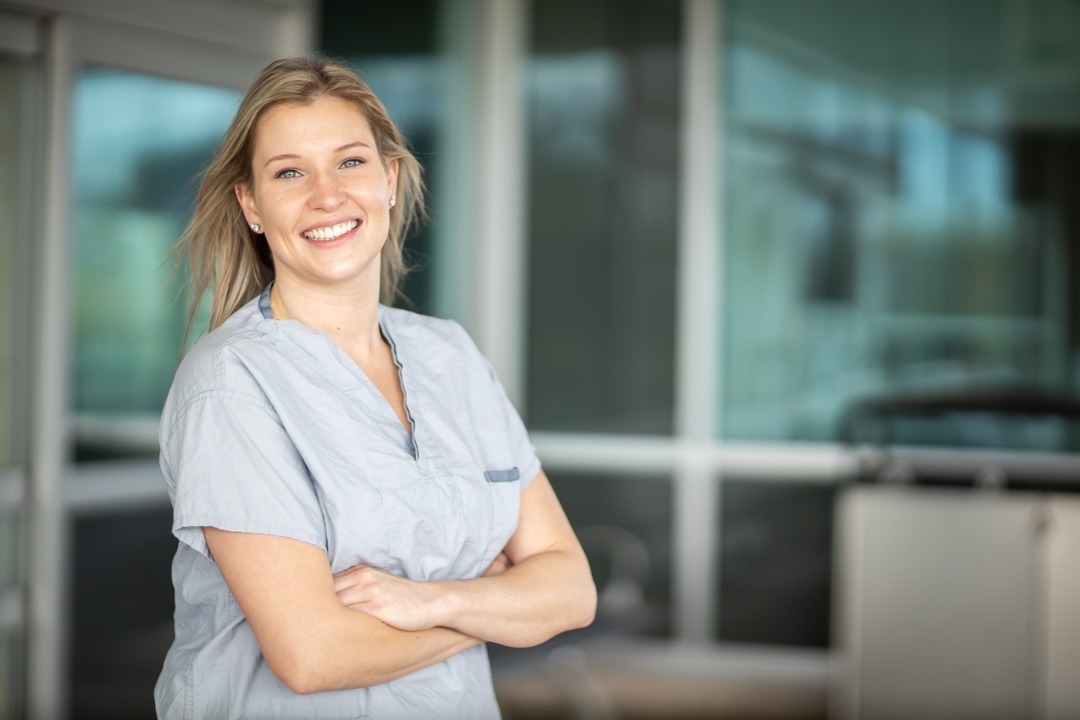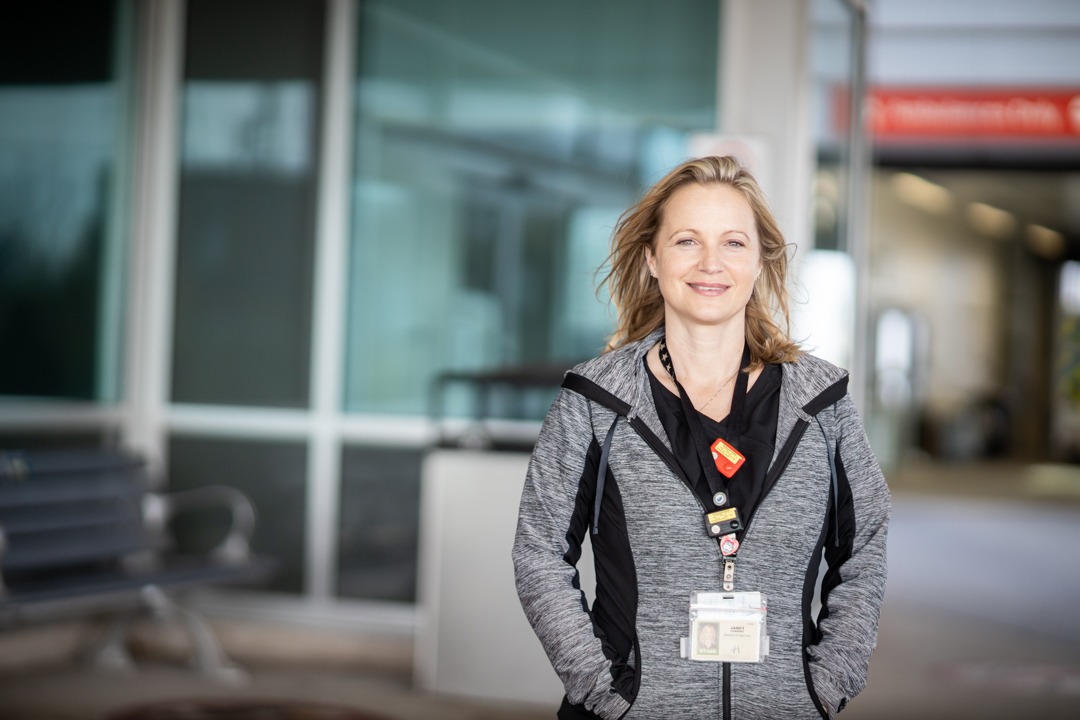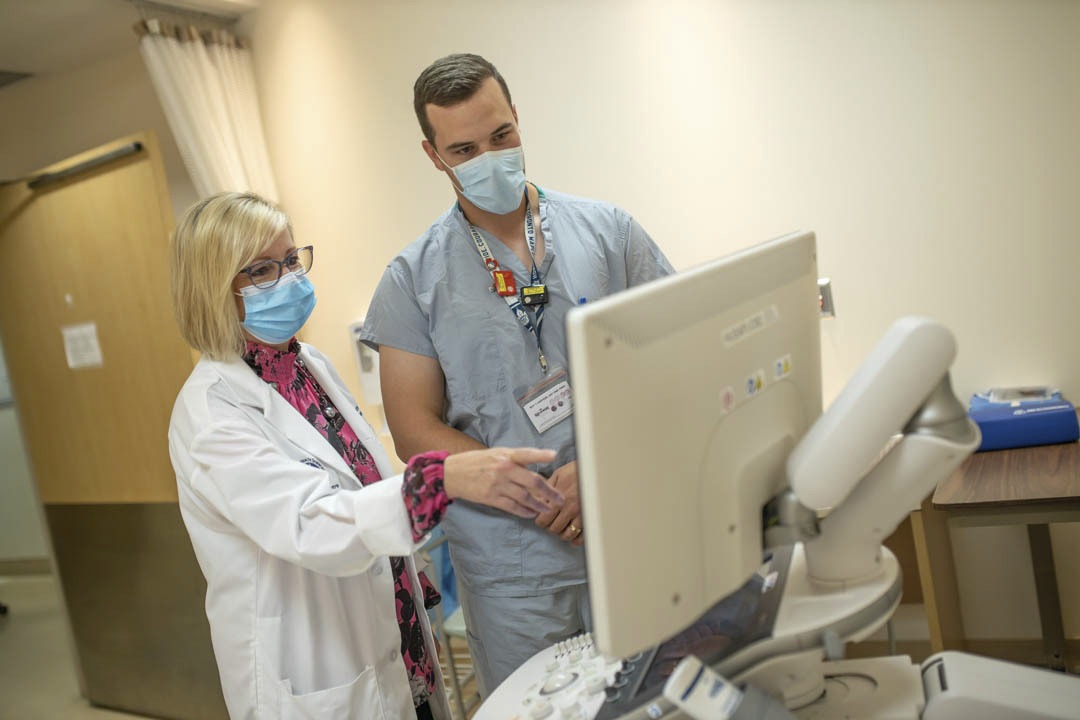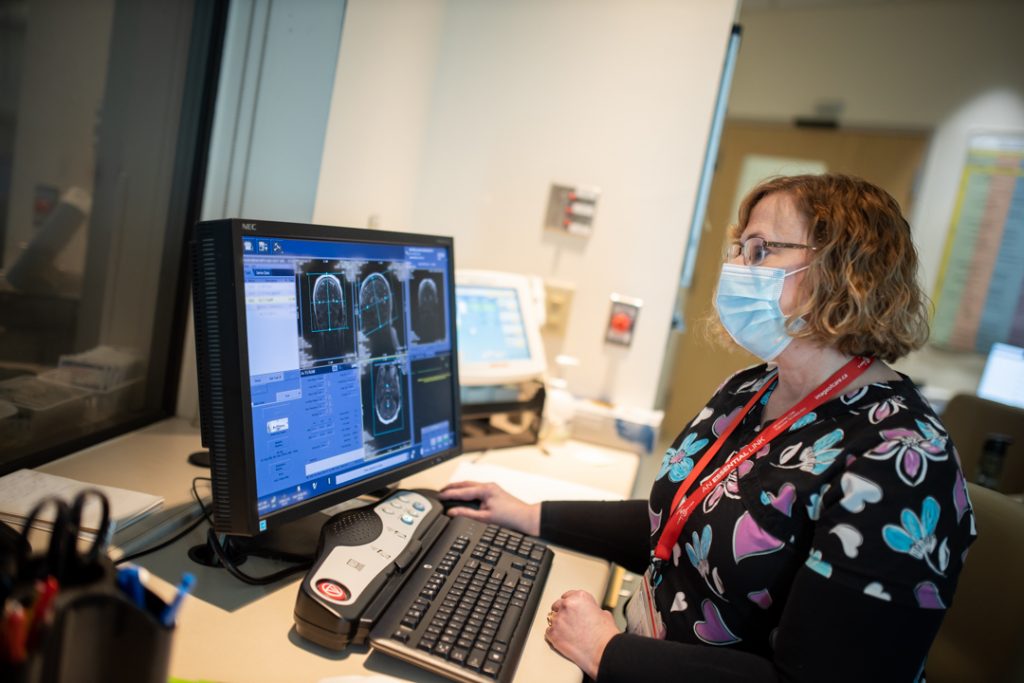
Introducing a Senior MRI Technologist
This profile is part of our Introducing MR Tech series to highlight the work of our diagnostic imaging unit. Learn how one HHS staffer progressed from engineering to medical imaging.
Jill Whiteley-Lamb is a senior magnetic resonance imaging (MRI) technologist with Hamilton Health Sciences. She has been working out of the Juravinski Hospital and Cancer Centre for the last 15 years – but she didn’t always dream of a job in health care.
“When I was studying mechanical engineering, I realized that I liked people better than machines,” says Whiteley-Lamb.
What inspired you to get into your line of work?
I was taking a mechanical engineering program but realized it wasn’t for me, so I left the program and went into X-ray. Then about 16 or 17 years ago, I decided I wanted to move into MRI so I went back to school at The Michener Institute and took the MRI program. I was pregnant with my daughter at the time.
I’ve been with HHS for about 15-and-a-half years. When I graduated from the MRI program, my position was on a casual basis but within the first nine months, I landed a full-time job that was half CT/half MRI. Then eventually my work became full-time MRI.
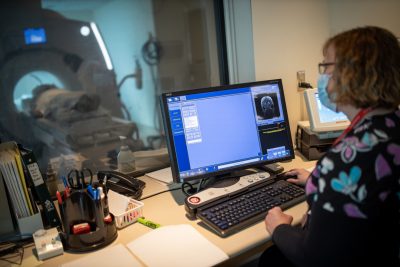
Whiteley-Lamb has been with HHS for over 15 years. She initially started in X-ray, then returned to school to study MRI.
What are the daily responsibilities of a senior MRI technologist?
I try to help the MRI department run smoothly. Being in a senior position, I have to organize and prioritize the requisition forms that we receive from family doctors, which are then sent to the radiologists and booking clerks. I also get patients ready for their procedures and make sure everyone who is coming for a scan has their implanted devices investigated and are safe to scan. In terms of administrative duties, I relieve staff lunch breaks and regular breaks and attend any meetings as required.
There are some things that happen that aren’t day-to-day. For example, we get calls from inpatient wards who are following up on requisition forms. Radiologists determine the patients who will be looked at for days and we go from there. I try to make sure we have enough staff so patients get the best care they need.
Do you have any special memories about a patient or patients?
We have a lot of cancer patients who we’ve developed friendly relationships within the hospital environment because they come back so often for follow-up scans. They’re always so nice and appreciative of our time and how we treat them when they’re here. It’s sad, too, because some do pass away.
We have a great bunch of patients. There are a few that we can easily strike up conversations with.
If there’s any other type of work in healthcare you could do, what would it be and why?
I like the variety that MRI has. I have aspirations to hopefully move up to Charge Tech position someday. I really enjoy the field that I’m in and the people I work with. I wouldn’t want to work anywhere else.

